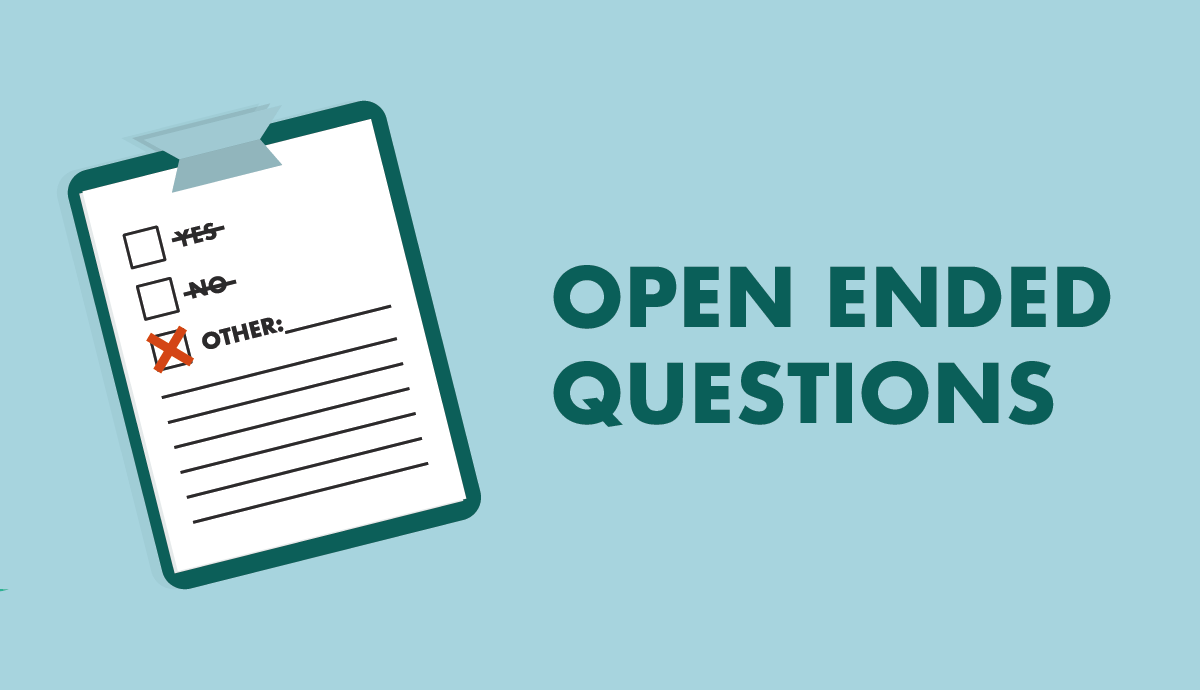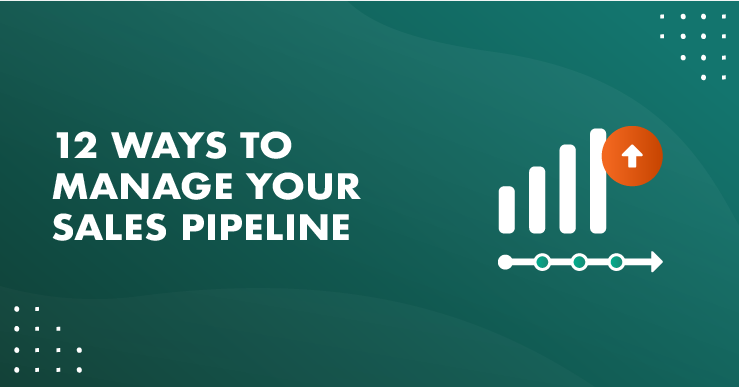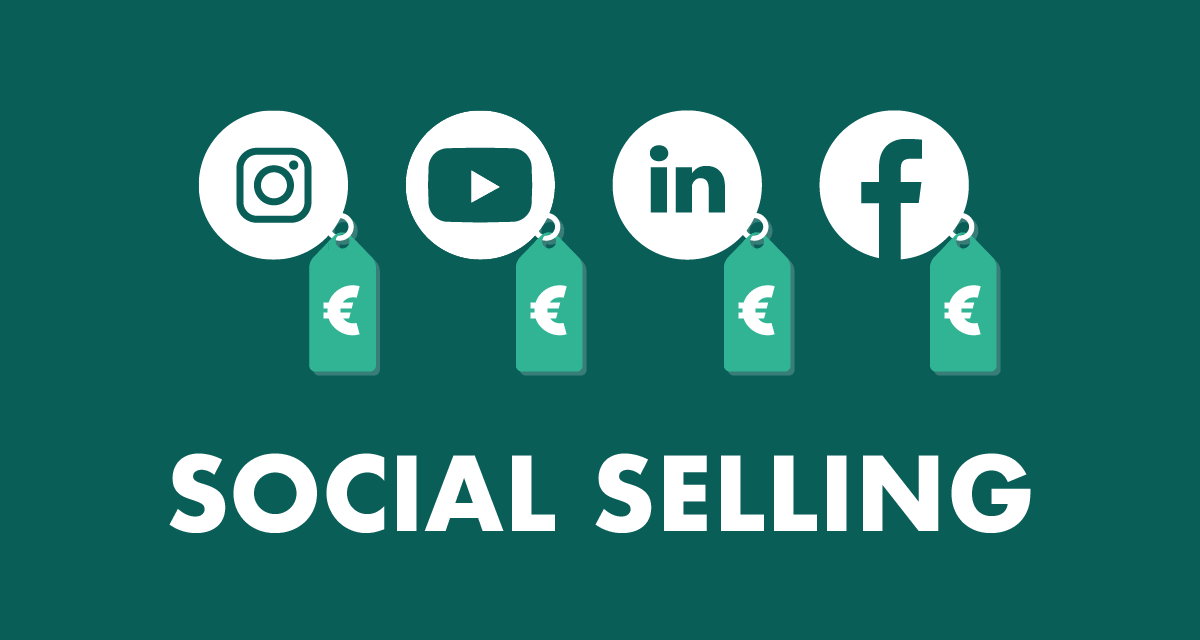Are you spending too much time talking to your prospects, and not enough time learning about them?
The simple truth is – if you spend more time listening to your prospects than you do talking, you will understand them better.
In turn, this will not only help you pitch your product in a way they’re more likely to buy, but also help you understand the motivations behind their enquiry.
And it all starts with asking the RIGHT questions: open-ended questions.
In this article, we’ll share:
- When to ask open-ended questions
- 31 open-ended sales questions (and examples)
- How to encourage your sales team to ask questions
Best of all, the unique research shared in this article is based on our own survey, based on real responses from 760 sales professionals.
What is an open-ended sales question?
Before we dive in with the details, let’s be clear on what an open-ended sales question really is.
Here’s the definition: An open-ended sales question is something you ask a prospect that doesn’t have a one-word answer like “yes” or “no.” Instead, this type of question prompts a prospect to start talking – usually about their situation, motivations, or goals.
There are many benefits to asking these over closed-ended questions.
Let’s take a look at a few:
Build rapport with prospects
If you were having a conversation with someone and they only answered with “yes” or “no,” how boring would your conversation be?
You’d likely walk away feeling like you didn’t really know much about the person you’re talking to.
Rapport-building questions solve that problem. With open responses for your prospects to talk, you get to know them better.
This means you can figure out exactly what they want faster, and tweak your sales conversations to deliver the information they need to convert.
No wonder 57% of sales reps think open-ended questions build a better rapport with their leads:
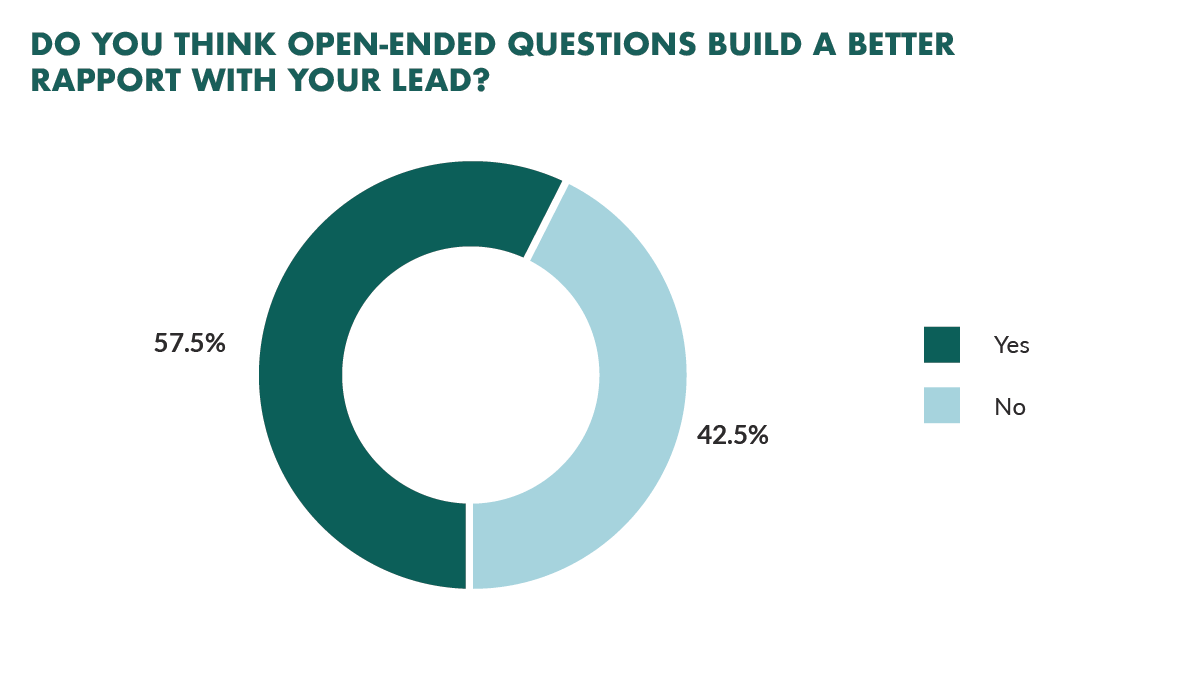
Speed up the buying process
The more you know about your prospect, the better you can help them.
Allowing leads more time to explain what they want means you actually speed up the entire sales process.
You’re able to give them what they want as soon as they indicate they want it, rather than forcing them into a sales script they’re confident to buy without hearing.
Craft a winning follow-up pitch
“The value is in the follow-up.”
How many times have you heard sales reps say that?
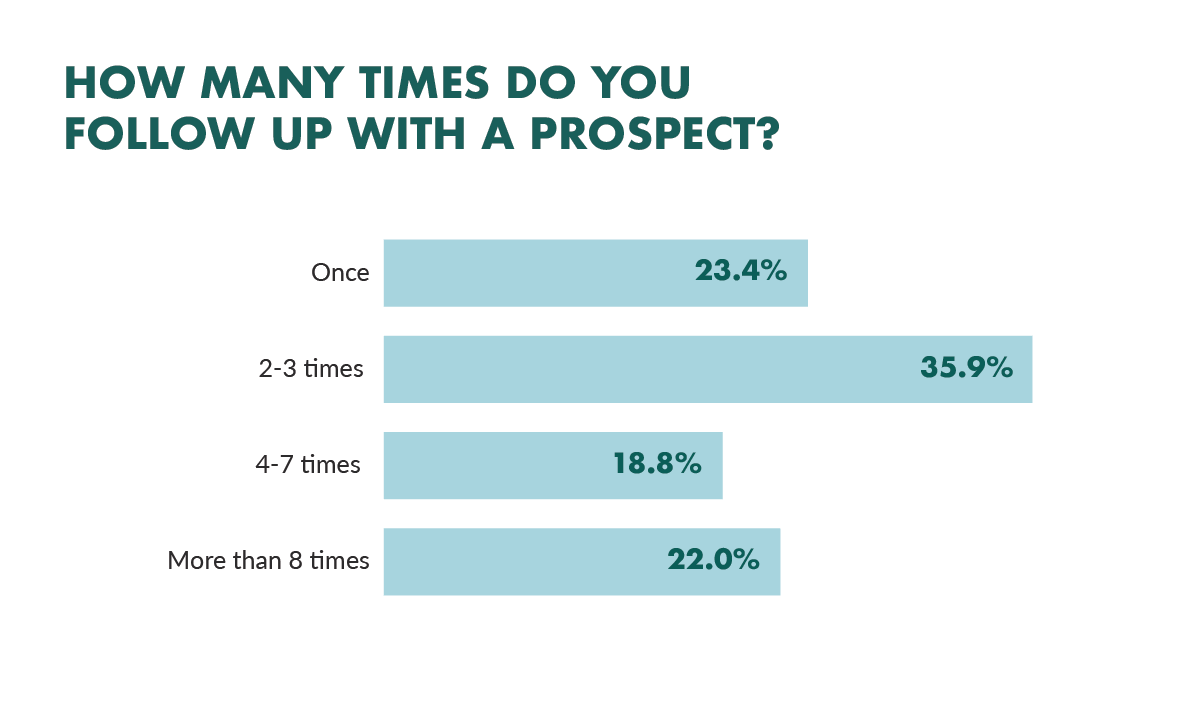
It can be true, but a more accurate version is: “The value is in a good, personalized follow-up that uses open-ended questions to prompt a response.”
By showing a genuine interest in the prospect, you can use open-ended questions to encourage prospects to respond to a follow-up email or voicemail.
For example: asking “How did discussions with your team go?” gives them more reason to respond. It’s much more effective than “Did your team like this?”
When should sales reps ask open-ended questions?
One of the reasons is that they’re not sure when to ask such questions.
But, truth is: open-ended questions should be asked throughout the entire buying process.
Why? Because this type of question helps qualify leads and judge whether a prospect should be prioritized. By knowing this at the beginning of their sales cycle, you can focus on prospects with more chances of converting, rather than wasting time on those who have no intention buying.
Throughout the sales process, open-ended questions can help judge what a prospect needs to convert. You can identify their pain points, goals, and motivations: three things to play on when pitching why your product or service is the best option for them.
Open-ended questions should play a huge role in follow-ups, too. You can ask prospects what they want from you – like what they’re struggling with, which features they need, and what would convince them to buy.
31 powerful open-ended sales questions to ask prospects
Ready to start using open-ended questions to get your prospects talking?
Let’s take a look at 31 open-ended sales questions you can ask prospects at each stage of the sales process:
Sales-qualifying questions
You should already have a solid understanding of what your potential customers look like. A buyer persona can house all of this information. It details the demographics, qualities, and motivations that your typical customers share.
Use these sales discovery questions to see whether a new prospect fits your target persona:
- Could you tell me about your business?
- What does a day in your life look like?
- How do you think this product/feature can help your business?
- How many people work at your company?
- When do you imagine using this product/service?
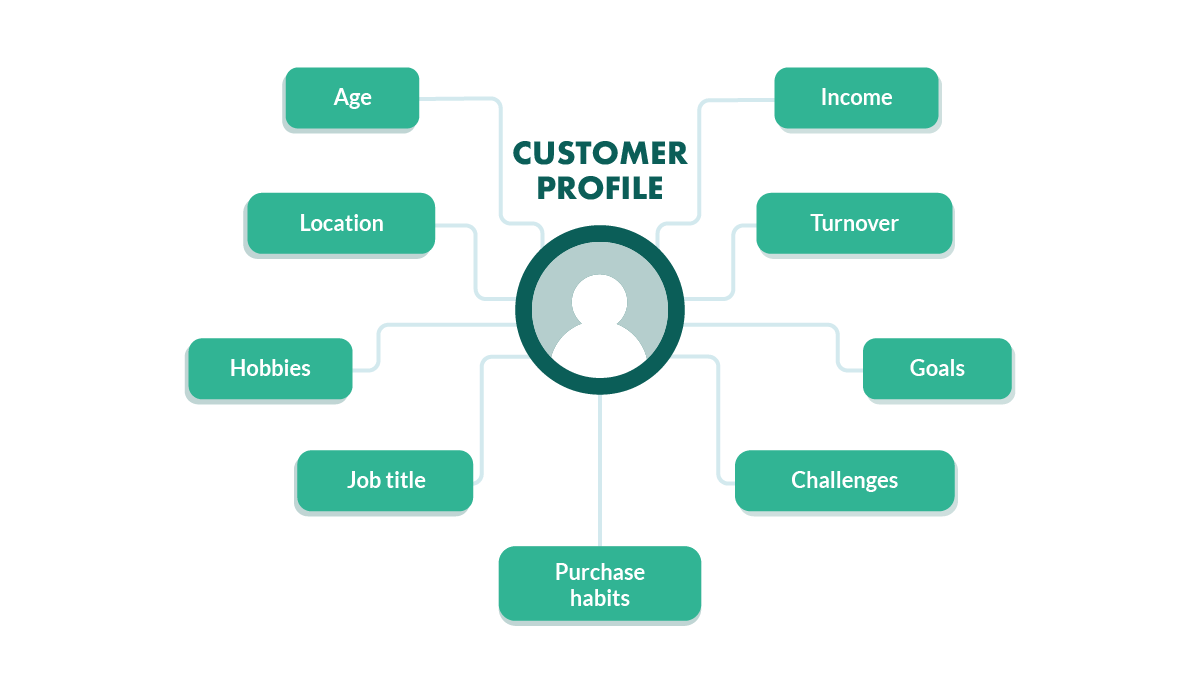
Pain-point questions
Pain points are the issues your customers are solving by purchasing your product or service.
For example: Amazon solves a pain point of paying for slow delivery. A marketing agency might solve the pain point of not having enough time or in-house skills to execute great campaigns.
Dig into the pain points your audience are facing using these open-ended questions:
- What are the biggest challenges you’re currently facing?
- What problem were you hoping our product/service would solve?
- What’s preventing you from solving this issue?
- What other options have you considered (or tried) so far?
- What hasn’t worked for you in the past when making similar purchases?
- Can you give me an example of when you’ve experienced this pain point? How did you feel?
Motivation questions
Motivations also have a huge impact on whether a customer will buy your product. They can use your product or service to meet a goal, such as – growing their business, making their team more productive, or hiring top talent.
Also known as probing questions, you can figure out what’s motivating your prospects to buy using these open-ended sales questions:
- What goals are you working towards right now?
- Why is this a priority for you now?
- What’s the impact on your business for you to not solve this issue?
- If you were to overcome this, what impact would it have on you?
- What does success look like to you?
- What are your top priorities when using a tool / hiring a service provider like ours?
Sales objection and decision-making process questions
Unfortunately, sales calls can go well but fall at the last hurdle.
Prospects might not get approval from stakeholders, or have to pitch your product or service to multiple decision-makers on their team.
The following open-ended questions can help both you and your prospect to prepare for any sales objections. You can work together to plan around their objections and get the sale:
- Who else is involved in the buying decisions?
- How does your decision-making process look like?
- Who is the decision maker at your company, and how do you get their approval?
- How do you plan on pitching this to your stakeholders?
- What’s your annual budget for products like this and who sets it?
- How does your business decide what to invest in?
- What will happen if you don’t get a sign-off on budget to solve your pain point?
- Have you tried any of our competitors? If so, what made you look elsewhere?
Feedback questions
You can’t plan for every single sales call you have. Sometimes, you’ll get a prospect that wants more information than your sales script provides. It’s impossible to figure out what they really want, right? Not necessarily.
These feedback-based questions prompt your prospect into sharing the extra information they need before converting, allowing you to answer questions they haven’t yet asked or had answered:
- Can you walk me through the journey of how you found our product/service/website?
- Do you have any more questions that I haven’t answered yet?
Follow-up questions
Follow-ups have been found to be the third biggest challenge for sales teams. It’s difficult to know exactly which channel your customer wants to hear from you through, and the perfect time to send that follow-up message.
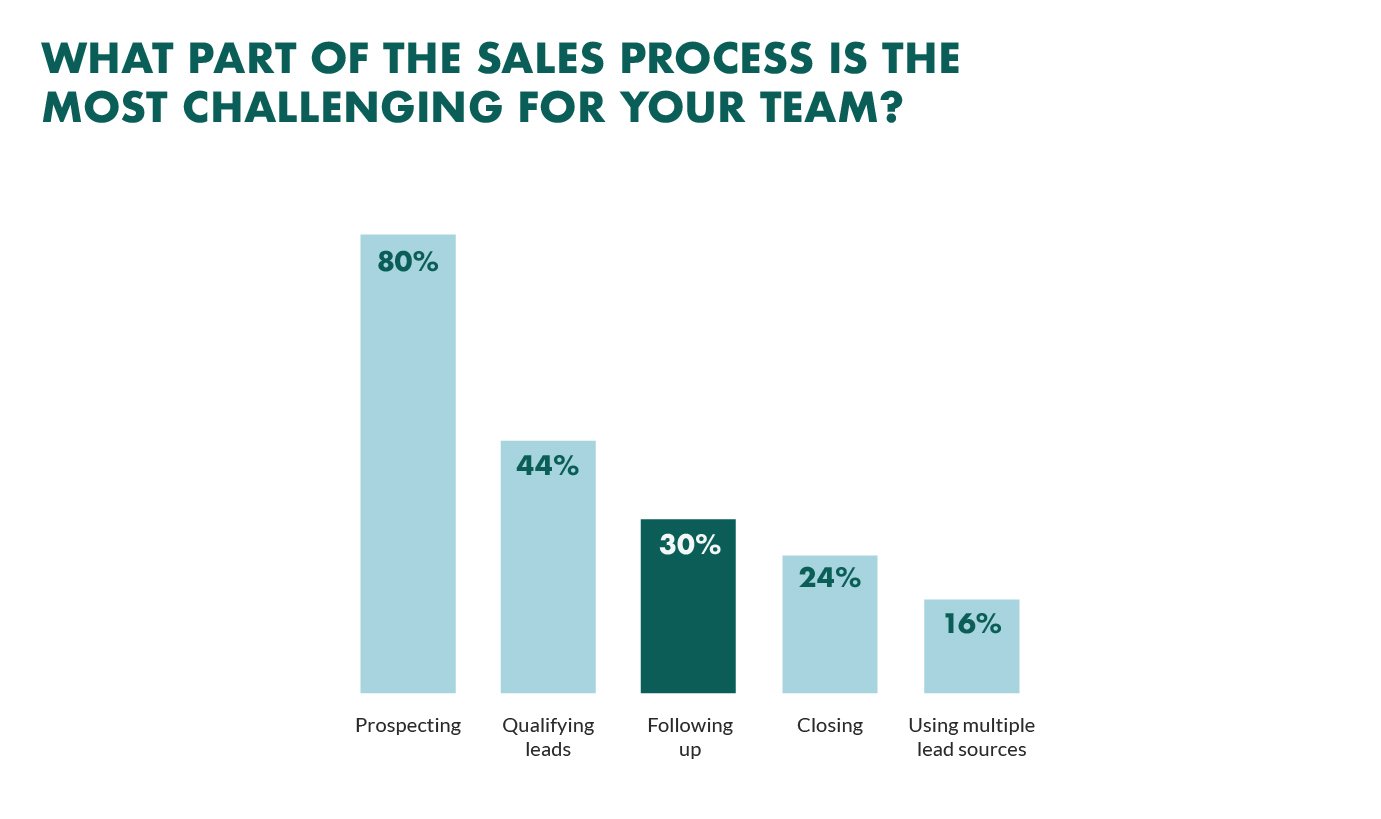
But when you decide the perfect format and time, what should your message actually say? Drop these open-ended questions into your follow-up scripts to get a prospect back in touch with you:
- What did your team think of the product?
- Did any extra questions crop up when pitching this to your team?
- When’s the best time to schedule another chat?
- How should we move forward with this?
How to build an open-ended question ethos
Open-ended sales questions aren’t just things you should use ad hoc whenever there’s a silence on the phone.
You should build open-ended questions into your entire sales department’s ethos, and build a team that asks questions by default. (They’re the people who will understand prospects and ask the right questions that’ll convince them to close.)
Here’s how to build an open-ended question ethos in your company and … close more deals.
1. Help reps build curiosity skills
In a recent questionnaire we asked our sales people how important curiosity was for them. Only 8% of our reps admitted that it was an essential sales skill.
Other things – like leadership and communication – are the things sales reps think they need more than curiosity.
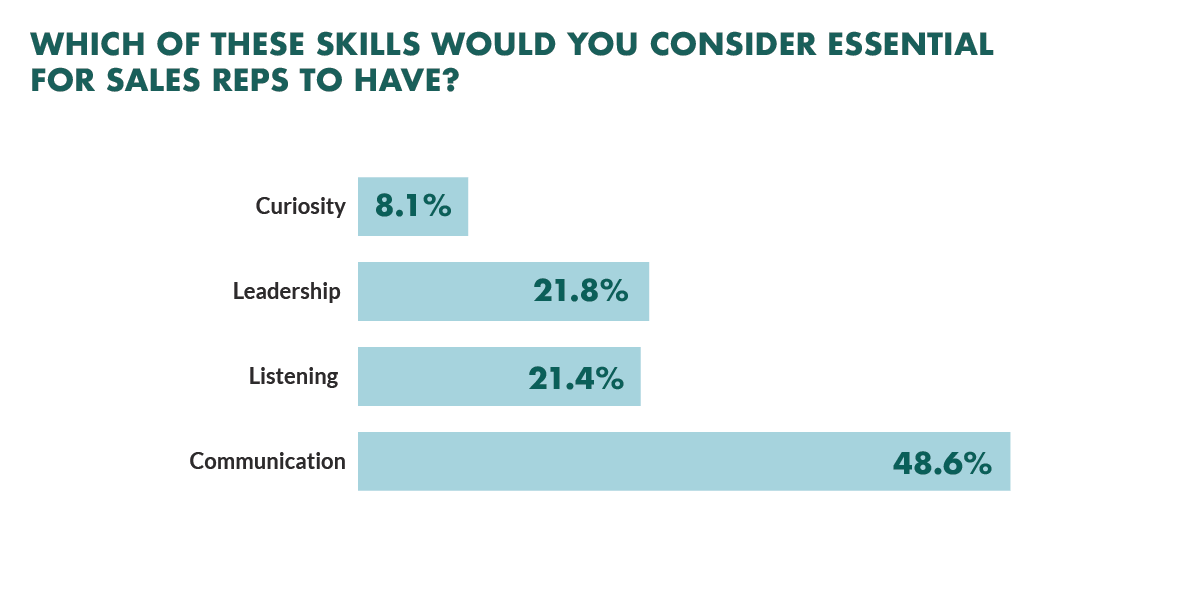
Granted, those skills are important.
The only issue? It’ll come across as inauthentic if you’re asking open-ended sales questions for the sake of it. Customers have a finely-tuned internal monitor that helps them spot sleazy sales reps looking for a commission, and not really caring about them.
A surefire way to give that impression is by reeling off a list of open-ended questions, rather than actively listening to your prospect’s answers and tweaking your conversation based on them.
You’ll want to train your sales professionals to be curious. Ask them to constantly think “why?” and genuinely care about their prospects and what they want.
Remind them that helping your customers win means you do, too.
2. Follow customers down rabbit holes
It’s easy for sales teams to set aggressive goals.
“Close 50% more deals this month!”
“Bring on 100 new customers this week!”
“Increase your close rate by 200% this quarter!”
That’s a classic sales mistake.
Sometimes, sales goals just aren’t achievable. To meet them, reps might feel like they need to cut corners and close deals as quickly as possible.
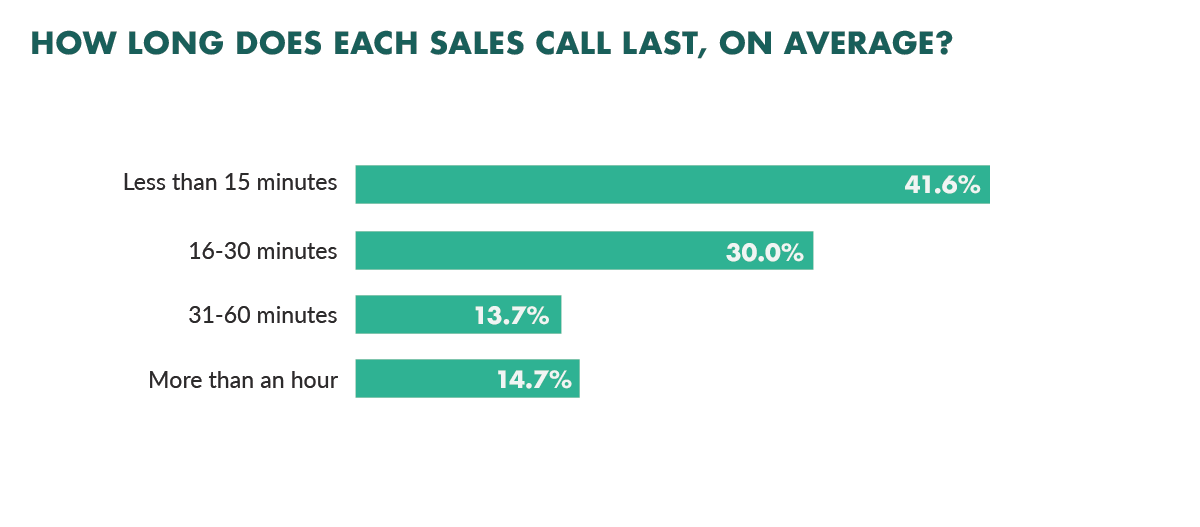
Following customers down rabbit holes helps uncover things you wouldn’t have otherwise known. You can figure out the current solutions they’re experimenting with, but not working. You’ll know the motivations causing them to look for another issue.
The key is to spend time listening to your leads. Open-ended questions lead the conversation, but if your prospect indicates they’re struggling with something, ask them to explain. Don’t speed to the next question and rush them off the phone. Instead, spend time following them down rabbit holes to dive deeper into their real goals and motivations.
Remember: your prospect’s answers are the perfect way to understand what they want and need. That’s the ideal fuel to deliver a sales pitch that’ll convince them to buy from you.
3. Spend more time listening than talking
Great sales reps are good listeners.
According to our own research, 1 in 5 sales reps spend more than 75% of the time talking. You can’t understand your prospect if you’re pitching how great your product is, and not giving them time to reply.
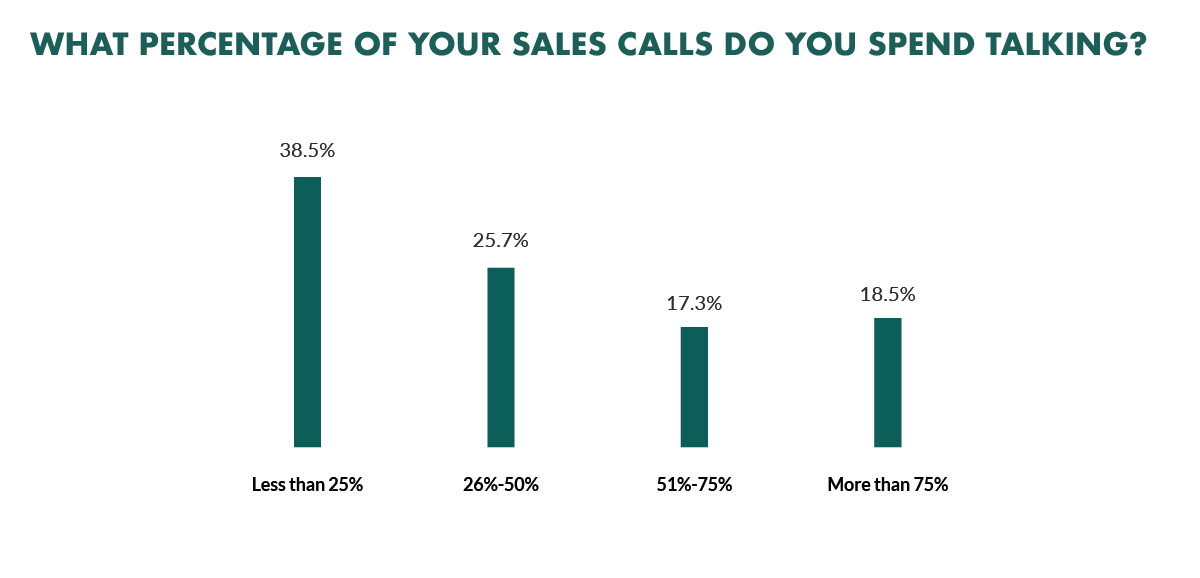
Remind yourself to be quiet when customers are talking.
As a rough guideline, you should be spending just a quarter of your time talking. The rest should be your customers’ responses to your open-ended questions.
Yes, this may result in awkward silences, but learn to embrace them. It gives customers time to think, and give the answers you need to move forward.
When you’re listening to prospects talk about their challenges, don’t just take their words at face value. Use your emotional intelligence to understand how your prospect feels when they’re talking about their pain points.
Are they frustrated? Angry? Deflated? Each will need a different response to prove you were listening to them (especially when you repeat that back to them with phrases like: “I know you’re feeling frustrated. I would be too.”)
4. Build open-ended questions in your sales script
The easiest way to start understanding your prospects is to put these open-ended questions into practice.
So, head back to the master list of open-ended sales questions we gave earlier. Pick out a handful that would be beneficial to ask your prospect at each stage of their sales journey.
Then, start to include them in your sales scripts for:
- Meetings
- Phone calls
- Emails
- Follow-ups
- Social selling
5. Ask sales reps for their feedback
Once you bed the questions into your scripts, you’ll start to notice that some questions work better than others in getting your prospects to talk.
Ask your sales reps to make a note of the sales questions they use, and whether they were effective. Are there any specific questions that tend to pull the best insight into your customer’s pain points? Do they have their own questions they rely on to get customers talking? (a CRM is the perfect place to store this data.)
This data is a gold mine for tweaking your scripts and maximizing the chances of converting prospects who hear it.
Over time, you’ll start to see that some open-ended questions have a better impact on sales performance than others. It’s then that you should tweak your scripts to include the most effective questions, and help all sales reps close more deals.
Conclusion
As you can see, asking great questions makes a good sales strategy even better.
Whether you’re prospecting or crafting the ideal follow-up, use these open-ended questions to nudge prospects through the sales process faster and more effectively.
Make a note for which types of questions you’ll ask at each stage. Then, build an open-ended sales ethos by building curiosity skills and spending more time listening than talking. In other words – sell smarter!
Open ended questions aren't just about closing more deals.
They're about showing a genuine interest, creating a repport and building long-term business relationships.
